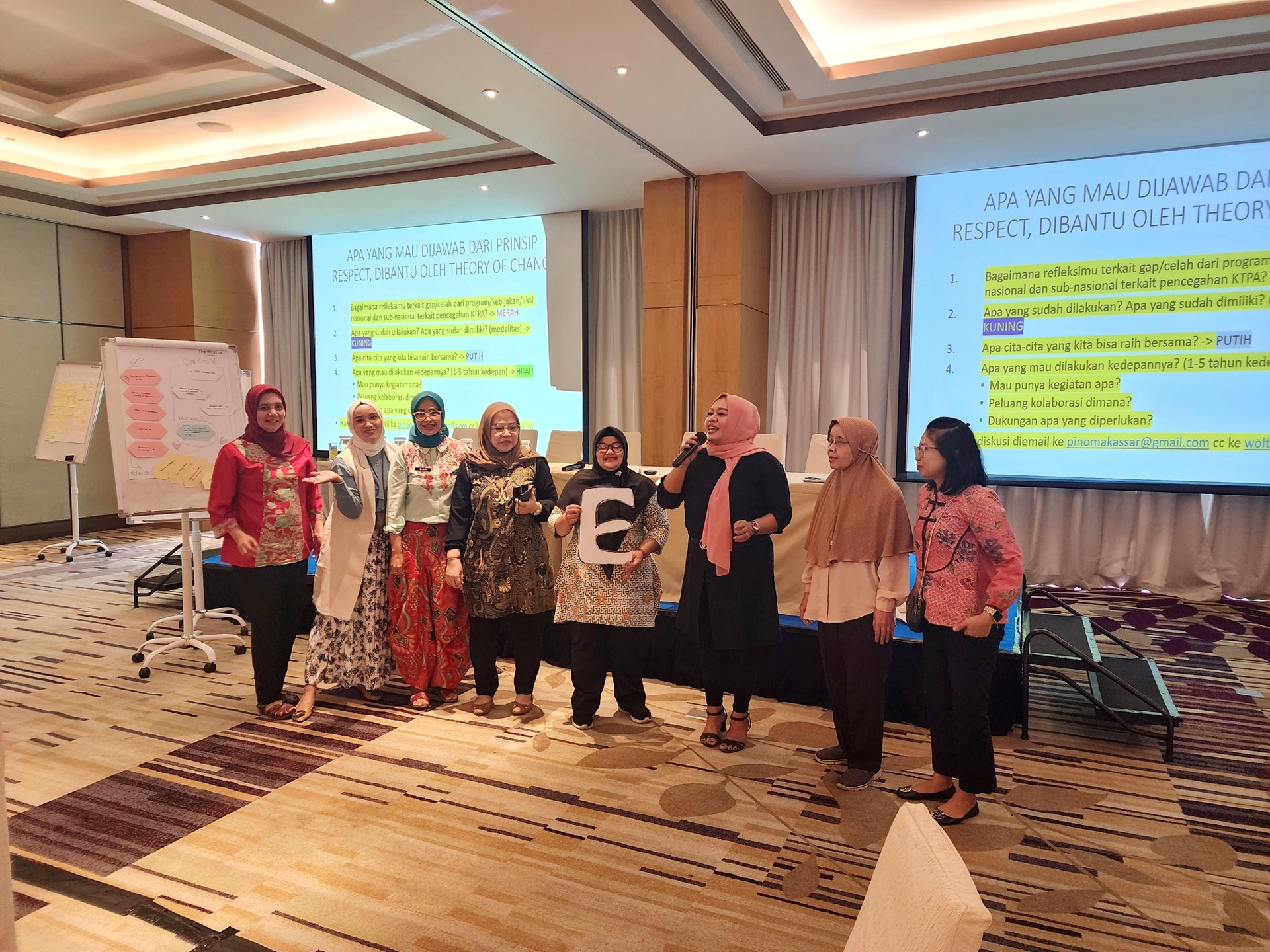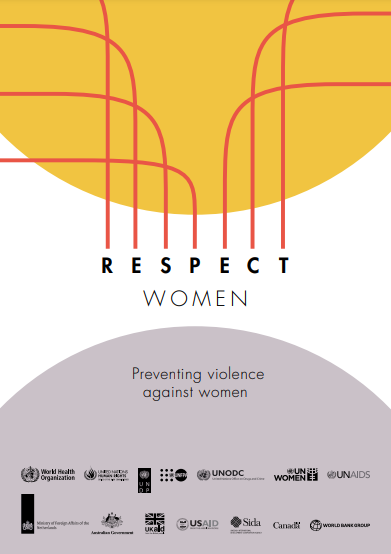Around the world, 1 in 3 women experience physical or sexual violence during their lifetime. These statistics have remained consistent over the last decade, and Indonesia is no exception, with 1 in 4 women subject to physical or sexual violence.
Violence against women is a deep-rooted problem that transcends borders, gender, and income levels. To address this issue, WHO, UN Women, and other United Nations (UN) agencies have joined forces to develop RESPECT, an evidence-based framework designed to prevent violence against women. Having been successfully piloted in various Asian countries, RESPECT has received praise, highlighting the importance of prevention in the fight against gender-based violence.
RESPECT, launched in 2019 by WHO and UN Women, is built on the core principles of the UN’s approach to combating violence against women, encapsulated in the acronym: Relationship skills strengthened, Empowerment of women, Services ensured, Poverty reduced, Environments made safe, Child and adolescent abuse prevented, and Transformed attitudes, beliefs, and norms. These principles were embedded in an intense series of strategic advocacy and initial dialogues the Ministry of Women Empowerment and Child Protection (MoWECP/KemenPPPA) and Ministry of National Development Planning (MoNDP/Bappenas) throughout the first semester of 2023.

RESPECT sensitization training. Credit: WHO/Alegra Wolter
In Indonesia, the rollout of RESPECT was a collaboration led by WHO and involving UN Women, UNFPA, UNICEF, UNDP, UNAIDS and MoWECP. All organizations provided input and support. The RESPECT rollout included technical capacity building through a sensitization training (23-25 August 2023) and a workshop (13-15 September 2023). Representatives from the Government of Indonesia, UN agencies and non-government organizations participated in both activities. A total of 67 individuals from various organizations demonstrated close collaboration between government, the UN, and communities.
During the intense three days of training and workshop, participants delved into a multifaceted exploration of gender dynamics and gender-based violence. They gained insights into the intricate web of intersecting factors that influence these issues, alongside a comprehensive understanding of human rights principles and the framework that encompasses violence against women at the global, regional, and national levels. The core concepts of RESPECT and its evidence-based framework were also covered in depth. In addition, attendees acquired the knowledge and skills required for programmatic design, employing the theory of change methodology within the context of preventing violence against women. The training fostered collaborative commitment, encouraging participants to develop actionable plans for addressing these issues. Interactive teaching methods, including active discussions, role-playing, case analyses, presentations, and talk shows, were seamlessly integrated into the sessions.

Group presentation in the RESPECT workshop. Credit: WHO/Alegra Wolter
“We will integrate RESPECT into the the National Strategy on Reducing Violence Against Women (Stranas PKTP). We need the full support from partner organizations,” said Eni Widiyanti, the Director for the Protection of Women’s Rights Against Domestic Violence and Vulnerability of MoWECP.
WHO, UN Women, UNFPA, and other UN agencies will provide technical support for MoWECP to ensure smooth integration of RESPECT into the national strategy.
The implementation of RESPECT in Indonesia marks a pivotal moment in igniting multi-stakeholder collaboration in preventing violence against women. It is imperative that we recognize the urgency of addressing this issue, not only for the sake of gender equality but, more importantly, for the creation of a just and compassionate society that upholds the dignity of all its members.
Following RESPECT principles on scaling up, MoWECP along with WHO, UNFPA, and other UN agencies plan to roll it out at the provincial level, starting with four provinces. Furthermore, participants have committed to integrate RESPECT principles into the work of UN agencies, government counterparts, and community organizations. They have also committed to map promising practices to prevent violence against women in Indonesia. This map will inform future initiatives to address this issue. All these efforts will pave the way towards a world where RESPECT is not just a concept but a reality, ensuring women can achieve their full potential without fear of violence.
Written by Alegra Wolter, National Professional Officer for Gender, Equity, and Human Rights, WHO Indonesia.

